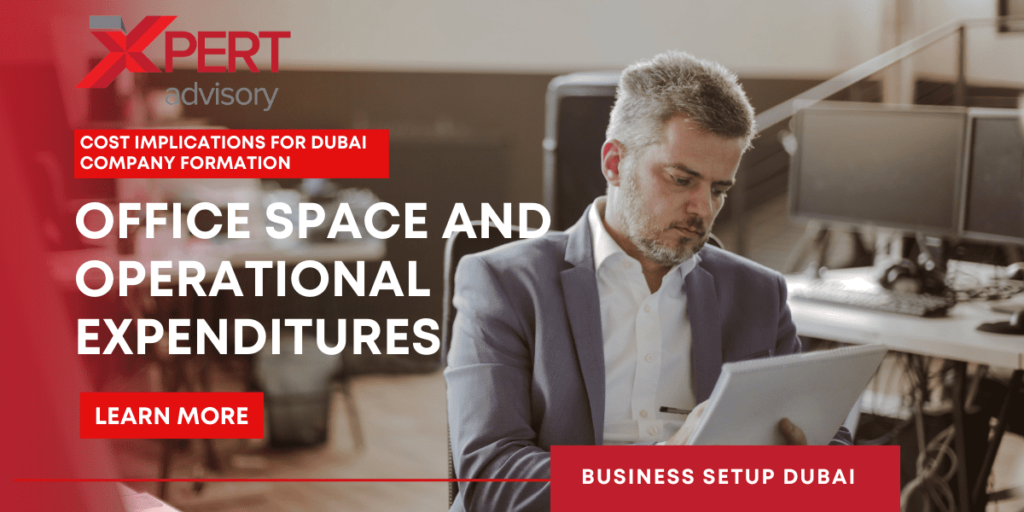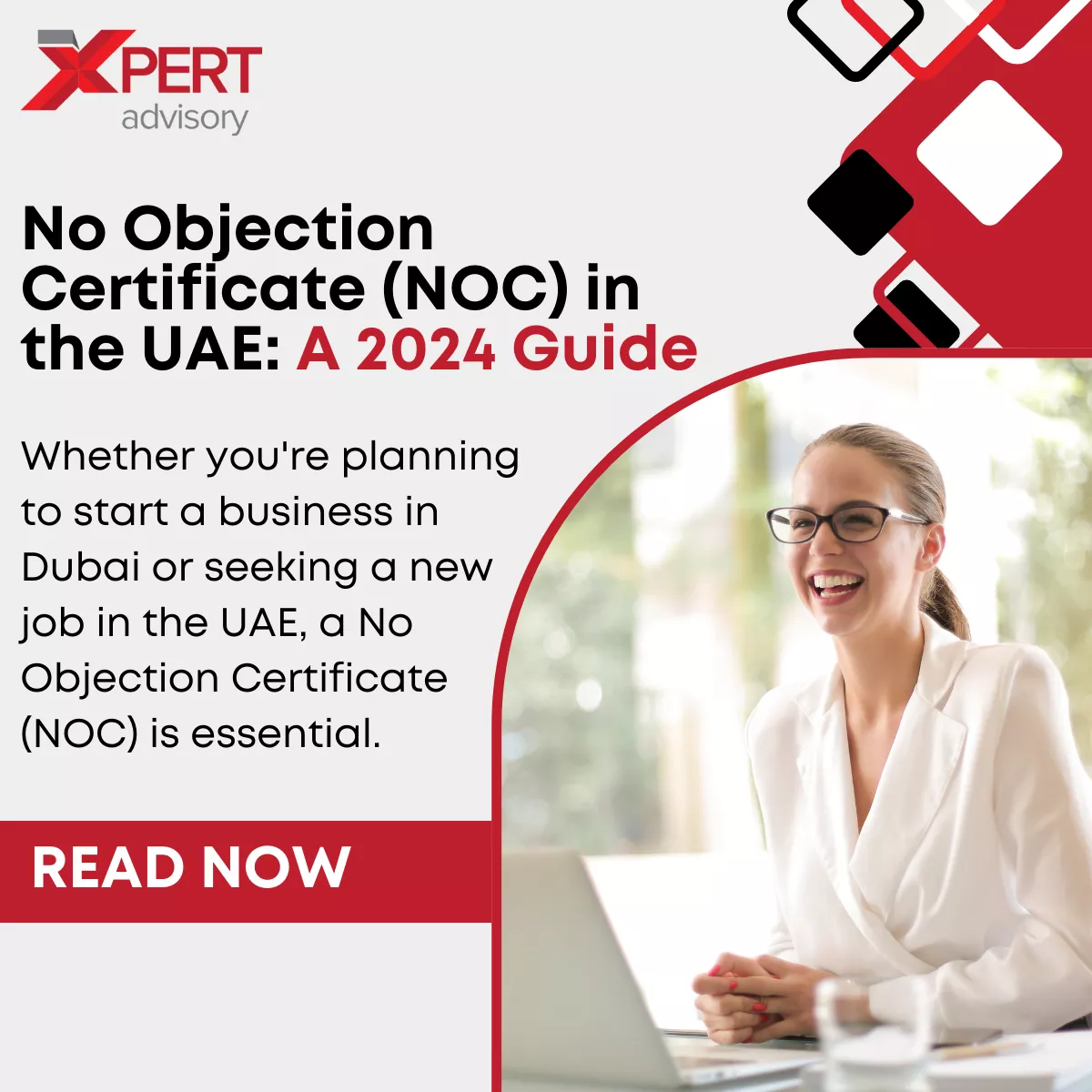Company formation and business setup in Dubai, UAE, can be a daunting task. Did you know that Dubai offers an incredible tax-free environment for businesses and entrepreneurs? This article will guide you through the advantages, steps, and resources needed for setting up your company in this dynamic city.
Discover how simple starting your dream business in Dubai can be!
Advantages of Establishing a Company in Dubai
Dubai stands out as a beacon of opportunity for entrepreneurs and established businesses alike, offering a unique blend of benefits that cater to the ambitious growth plans across various sectors.
By establishing your company here you tap into a thriving ecosystem designed for success, driven by progressive policies and world-class amenities that support business excellence.

Tax Benefits and Financial Incentives
In Dubai, businesses get big tax breaks. Companies do not pay corporate taxes if they are offshore or in a free zone. This means more money stays with the business. Private people also don’t pay taxes on what they earn.
For smaller businesses making less than AED 3 million* each year, there’s no need to worry about corporate tax until December 31, 2026. These savings help companies keep growing and doing well.
Another great thing is that profits over AED 375,000* don’t get taxed either. This makes Dubai a top place for investors and entrepreneurs looking to make more money without losing it to taxes.
With these benefits, starting a company in Dubai can be very smart financially.
Strategic Location for International Business
Dubai sits at the crossroads of Europe, Asia, and Africa, making it a prime spot for international business. Companies here are perfectly placed to trade with over 2 billion people across different time zones.
Easy access to many cities by air or sea means goods can move quickly around the world. Also, Dubai’s ports and airports are among the busiest on the globe. This allows businesses in Dubai to send and receive products fast and keeps them connected with global markets every day.
Businesses in Dubai benefit from being part of a network that reaches into emerging markets as well as established ones. With its strong ties to both Eastern and Western economies, companies can tap into diverse opportunities for growth.
The city’s commitment to world-class infrastructure supports smooth operations for all kinds of businesses – whether they deal with retail, cargo or anything else that crosses borders.
Robust Infrastructure and Business-Friendly Environment
From its global reach, Dubai also shines with its top-notch roads, ports, and airports. This makes moving goods and traveling easy. Plus, you’ll find the latest tech all over the city.
Companies enjoy fast internet and strong power supplies.
The government in Dubai wants businesses to grow. It has made rules that help companies start and run without too much trouble. There are areas called free zones where business owners from other countries can keep control of their companies without needing a local partner.
These zones also offer tax breaks which save money for businesses.

Types of Business Entities in Dubai
In Dubai, entrepreneurs can select from a variety of legal forms for their businesses, each catering to different needs and offering distinct advantages. Understanding the differences between these business categories and entities is crucial for aligning your company’s goals with the right business structure.
Mainland Company
A Mainland Company in Dubai is a powerful choice for business owners who want to do a lot of work inside the UAE. You can own all of it if you’re not from the country. This is big news because it means you don’t need a partner from the Emirates to start your company.
Plus, there are more benefits! People like how they can get many visas and pay very little in corporate tax.
The first-year cost to set up a Mainland Business or Company starts at about EURO 8950. This makes sense for those looking to dive into the local market since these companies are super popular here.
After laws changed in 2021, more people from other countries got interested in starting businesses in Dubai because they could have full control over their company without needing an Emirati partner.
With this kind of setup, you can reach customers all over the country and grow your business big time!
Freezone Company
A Freezone Company in Dubai is like a special area where you can run your business with big perks. You don’t have to pay corporate taxes, which means more money stays with you. In these zones, businesses can do many different things—like services, trade, or making items—and the rules let them operate with ease.
Setting up a freezone company here also lets you keep full control without needing a local partner from the UAE. This is great for people from other countries who want to have their own business in Dubai.
Plus, these free zones are all over Dubai, each with its own focus and advantages for different kinds of companies. Hence, a freezone company registration in Dubai has many advantages. Next up is learning about Offshore Companies and what they offer to business owners looking to expand in Dubai.
Offshore Company
An offshore company in Dubai lets you run your business with great tax benefits. You don’t have to pay corporate taxes, making it a smart choice for many businesses. By setting up an offshore company, you can choose from over 1,000 business activities that Dubai offers.
This means you can find the right fit for what your company does best.
Setting up this kind of company needs some steps. You pick a trade license based on what kind of work you want to do – like professional, commercial or industrial. Also, you must get the right visa and Emirates ID along with opening a corporate bank account.
There are options to open a company either in one of Dubai’s free zones or on the mainland. Each place has different perks for your business to grow and succeed.
Understanding the Different Business Licenses
Understanding the diverse business licenses is a critical step in ensuring your company operates legally in Dubai, and we’ll guide you through what each license means for your specific entrepreneurial venture.

Commercial License
A commercial license in Dubai lets a company do general trading, import and export, or sell specific products. It’s for businesses that trade goods or offer services for profit. To get this license, the owner must first decide what kind of activities their company will do.
This step is crucial because it guides which licenses they need.
Once the activities are clear, the next step is applying for the commercial license through Dubai’s Department of Economic Development (DED). The process includes submitting documents like your business plan and proof of identity.
After getting this license, a business can start its operations in Dubai, UAE. They can trade across mainland UAE markets and even international ones if they choose to expand.
Industrial License
Moving from commercial activities to manufacturing, an industrial license in Dubai is your key if you plan to make or produce goods. With this license, you can import raw materials, carry out the production of specified products and then export them anywhere.
It’s important for businesses that set up with an industrial license in Dubai Free Zones because they enjoy tax advantages and face fewer accounting hassles.
To get this kind of license, you must have a physical warehouse within the UAE and follow certain environmental and safety standards. The government wants to make sure your factory is safe for workers and does not harm nature.
This makes getting an industrial license more complex than other types but also shows customers that your business meets high-quality standards.
Professional License
A professional license in Dubai is a must-have for anyone wanting to offer their skills like consulting, accounting, or healthcare. It lets you own your company fully and keep all of your work secret.
Plus, you don’t have to pay taxes or import/export fees, and getting visas for life can be easier.
To get this license, you need to be 18 years old at least, without any past crimes in the UAE mainland or other places. You’ll also need enough money and a good business plan. If you’re not from the UAE, make sure you have a resident visa too.
Once everything is set up with your professional license, it’s time to look into how to start your business in Dubai by going through “The Procedure for Setting Up a Business in Dubai”.
The Procedure for Setting Up a Business in Dubai
Embarking on the journey of starting a business in Dubai depends upon and involves and navigating through a well-defined procedure that paves the way for successful company establishment. From deciding on your business type to fulfilling visa and banking formalities, each step is tailored to integrate your enterprise into the dynamic economic landscape of the UAE.
Choosing a Business Activity and Legal Form
Pick the activity of the company, i.e., what the company will do, and lock in on the company structure. You can choose a business that fits your goals like trading, services or manufacturing. Then, pick the right legal shape for your company.
A Mainland Company lets you conduct business within the UAE without a local partner. This type means you can own it all by yourself if you are from another country.
You also have to think about costs when deciding on a company form. A Mainland Company formation and business setup costs around EURO 8950 during the first year. It’s important because this choice affects how much money you need at the start and later on for running your business.
Selecting the Right Location: Mainland vs. Freezone
Choosing where to set up your specific business in Dubai is a big deal. Mainland and Freezone options have different perks. In a Mainland area, you can do business anywhere in the UAE or outside of it.
You need a local partner who owns 51% of the company, but this lets you take on government contracts too.
Freezones are special areas for business. Here, you don’t need a local partner – you can own 100% of your company yourself. They make things like getting visas and opening bank accounts easier and quicker.
Plus, many respective free zones have made their prices lower so more people can start companies there at good rates.
After selecting the perfect spot for your company comes another important step: obtaining the necessary trade license.
Obtaining the Necessary Trade License
Once you’ve decided on a location for your business, it’s time to apply for the correct trade license. In Dubai, there are three main types of licenses: commercial, industrial, and professional.
Each type matches different business activities. For example, if you’re selling goods or services directly to customers, you’ll likely need a commercial license. Making products would require an industrial license.
To get your trade license, you must submit the right papers and pay any fees. The exact cost will depend on what kind of company you have and how many visas you want for employees.
Remember that prices start at about $5500 with one visa for the first year in some cases. This step is very important because without a trade license, your company cannot legally do business in Dubai.
Visa Processing and Residency Requirements
To set up a business in Dubai, you will need to get visas for yourself and the people who work for you. It’s important because it lets you live and run your company in Dubai. The steps to get an investor visa include picking how your business is setup, making sure you meet the money rules, and getting your business on the official list.
After your company is ready, getting a visa usually takes about 5 days. This means you can start doing business pretty quickly.
Getting this visa also means that you can open bank accounts, sign up for utilities like water and electricity, and do other important things needed to keep your business running smoothly in Dubai.
Each employee will also need their own visa which allows them to work legally in your company. Remember that having all of this sorted out helps make sure that no big problems come up later with how legal your business is or with following the rules of the country.
Opening a Corporate Bank Account
Having a corporate bank account is key for any business in Dubai. It lets you handle cash, pay bills, and keep track of your finances. To open this account, at least one company member must have a UAE residence visa.
Banks want to know who owns the company and how it works. They will ask for papers like a business license and passport copies.
Getting an account can be hard in some Freezones due to strict rules. But with the right help and all needed documents, you can do it. A good bank account helps your business run smoothly in Dubai’s growing market.
Essential Documents Required for Business Registration
Navigating the business setup and company formation process in Dubai mandates a comprehensive compilation of key documents to ensure legal compliance and a smooth registration journey. From proving your identity, detailing shareholder involvement, to articulating your business aspirations in a well-structured plan—every document plays a pivotal role in bringing your entrepreneurial vision to life within this dynamic emirate.
Personal Identification and Shareholders’ Details
You need personal ID and details about the people who own the company to get started. Everyone must show their identity card or passport. This helps prove who they are.
If you want a Limited Liability Company, as many as 49% of the owners can be from other countries. For a Free Zone Company, all owners can come from outside the UAE.
Your business plan and an agreement on how your company will work are also important. They must match what is required in Dubai for all businesses to get set up right.
Next, let’s talk about your business plan and memorandum of association.
Business Plan and Memorandum of Association
After gathering personal and shareholder information, the next step is to prepare a business plan. This document shows what your company will do and how it plans to make money. It should include details like your goals, target market, competition analysis, marketing strategies, and financial projections.
A well-thought-out business plan can help convince banks and investors that your idea is worth their money.
Along with your business plan, you need a memorandum of association for your company. This paper sets the rules for running the company. It lists things like the firm’s name, its purpose in Dubai or elsewhere in the UAE, and who owns shares in it.
The memorandum must meet UAE laws to get approval from authorities during registration.
Lease Agreements and NOCs
Setting up your business in Dubai means you need to have a lease agreement. This is a paper that says where your company will be and shows you have a place to work from. It’s important because without it, you won’t get your trade license.
Also, for some businesses, getting an NOC or ‘No Objection Certificate’ from certain authorities is a must. An NOC means different government offices agree with what your business will do.
You’ll show these documents when you want to open a bank account for your company too. Make sure they are ready and correct, so everything goes smoothly with registering your business.
Now let’s look at the costs involved in setting up your company in Dubai.
Cost Implications for Dubai Company Formation
The financial aspect of establishing a business in Dubai involves an initial investment for setup fees and licensing, along with ongoing operational costs such as office rent and employee wages.
Understanding the cost of company formation and business setup is crucial to ensure successful budgeting and the long-term sustainability of your venture in this dynamic market.
Initial Setup Costs and License Fees
Getting started with a new business in UAE (Dubai) means paying for setup costs and license fees. These can change based on what business you want to do and where you will be doing it. Depending on the type of business you wish to set up, initial costs in Dubai may vary. For instance, you might need at least AED 50,000* as share capital if you choose a free zone area.
Each kind of business also needs its own license, like commercial, industrial, or professional ones. The price for these licenses will vary too.
Choosing the right business and having enough money for these first steps is key to opening your business in Dubai. You’ll have to pay for the paperwork and legal stuff that goes with getting your license. Remember, whether it is a low-cost business setup or a high one, different areas in Dubai could ask for more money upfront than others depending on their rules.
Office Space and Operational Expenditures
Renting office space is part of the cost when you set up a business in Dubai. You need to think about how much room you need and where you want your office to be. Places like Business Bay may have higher rents, but they could also bring more customers.
The price will change based on size and location.
Running a business also means paying for things to keep it going, like electricity and water. You might need to buy equipment or furniture too. Plus, if you hire people, there are costs for their salaries and benefits.
So, you must plan your budget carefully to cover these expenses every month.

Navigating Legal and Regulatory Frameworks
Navigating the legal and regulatory frameworks in Dubai is crucial for safeguarding your business’s compliance with UAE commercial laws. From understanding labor laws to ensuring workers’ rights, familiarizing yourself with these guidelines is key to a smooth operational journey.
Compliance with UAE Commercial Laws
Businesses in Dubai must follow UAE commercial laws closely. This means they have to do things the way these laws say. For example, mainland companies can trade anywhere in the UAE but they need to pay corporate tax.
On the other side, free zone companies don’t pay this tax but their trading is limited to within their own area. Offshore companies also don’t pay UAE corporate tax and can do business around the world.
Keeping up with these rules is very important for all businesses. They ensure everything runs smoothly and no legal problems come up. Companies take care of taxes right and check that contracts are fair.
They look after employees well according to labor laws too. Following these steps helps businesses stay safe from legal issues and grow without trouble.
Understanding Labor Laws and Workers’ Rights
In Dubai, knowing the labor laws and workers’ rights is key for any business. All companies must follow UAE employment laws to treat workers fairly. These rules cover work hours, pay, safety, and how to end jobs correctly.
Free zones may have special rules, but basic rights are the same across Dubai.
For a company in Dubai mainland or free zone areas, you must respect worker rights about time off and ending jobs. If you break these laws, there can be big fines or even worse consequences.
So businesses need to learn about these labor laws before hiring anyone in Dubai.

Seeking Professional Assistance
Navigating the intricacies of setting up a company in Dubai can be daunting, but enlisting professional assistance smooths the process considerably. Expert consultants offer invaluable insights and support every step of the way, ensuring compliance with local regulations and streamlining your business establishment.
The Role of Business Setup Consultants in Dubai
Company formation and business setup consultants in Dubai play a key part in helping you start your company. They know all about tax laws, getting trademarks, and the right paperwork. If you work with them, they can make it easier to pick your business type, name it, get licenses, and even help you move to the UAE.
These experts will guide you through every step so that setting up a new company in Dubai can happen fast – sometimes in just 7 to 10 days!
Partnering with a consultancy like Xpert Advisory means you get years of experience on your side. They will handle complex tasks like immigration services and fundraising for you.
With their help, diving into legal matters and understanding labor laws becomes less confusing too. Their support can be crucial for making sure everything is done right from the start.
Benefits of Partnering with a Local Agency
Working with a local agency in Dubai can make setting up your company much easier. These experts know all the rules and steps to take. They help you pick the right business activity, get trade licenses, and handle visa and PRO services.
This means you won’t have to figure things out alone.
A local agency already has good contacts in places like Sharjah, Abu Dhabi, or wherever your business will be. They give personalized advice for your specific needs. With their knowledge of UAE laws and free trade zones, they save you time and money.
Plus, they make sure everything is done right from the start so that there are no problems later on.
FAQs on Company Formation and Business Setup in Dubai
Got lingering questions about setting up shop in Dubai? Our FAQs on Company Formation and business setup tackle common inquiries, from securing residency visas to managing financial transactions, providing clear insights for a smooth business launch.
Residency Visa Queries
When you begin a business in Dubai, getting a residency visa is part of the process. For FreeZone companies, this can be quicker and simpler. Depending on the type of company you form, sometimes no visa is required, but if you choose one with visa options, it means you can live and work in the UAE.
To get your residency visa, you need to follow several steps after setting up your company. These include medical tests and applying for an Emirates ID. Each Freezone has its own rules about visas.
Some give more visas without needing extra office space; others might have different criteria based on your business requirements.
Bank Account and Financial Transactions
Moving from visa questions, it’s time to talk about money matters. To run a company in Dubai, you need a bank account for all your cash needs. This is where you keep your business’s money safe.
You can pay others and get paid through this account.
Setting up your bank account is a key step after getting your business license. It lets you handle sales and costs properly. Xpert Advisory helps businesses open these accounts and deal with their money right from the start.

Conclusion
Company formation and business setup in Dubai is an exciting chance for growth and success. The city’s strategic position opens doors to a world market. With great tax benefits and full foreign ownership in free zones, the opportunities are vast.
Remember, expert advice can guide you through each step, making the journey smooth.
FAQs
1. What is a private limited company in Dubai, UAE?
A private limited company in Dubai is a business owned by a small group of people. It’s one kind of company you can start in the United Arab Emirates.
2. Is it possible to set up a tax-free business in Dubai?
Yes, you can create a tax-free business in places like Liwa or the Emirates of Fujairah, where there are special rules that let businesses not pay income tax.
3. What are public joint stock companies and FZ LLCs?
Public joint stock companies are big businesses with many owners who share profits called dividends. An FZ LLC is a type of company setup that offers good benefits for smaller groups or individuals looking to do business in areas like Al Sufouh or the Dubai International Financial Centre (DIFC).
4. Can I be the only owner if I start my business in Dubai, UAE?
Sure! You can be a sole proprietor, which means you own all of your business by yourself.
5. Are there any capital requirements for setting up my company in Dubai?
Yes, depending on what kind of company you’re making; there might be rules about how much money you need to start it—the minimum amount changes based on your business type.
6. Does starting a crypto-related company have specific rules in Dubai?
For crypto companies and other types dealing with money and finance, special laws apply. You must follow these rules and submit financial statements accordingly when doing this sort of contracting or construction work within zones like the DIFC.
Disclaimer:
This blog is intended for informational purposes only. The content is provided “as is” and we make no representations or warranties of any kind regarding its accuracy, completeness, or suitability. Any reliance on the information is at your own risk. We are not liable for any losses or damages arising from the use of this blog.
* – Fees and Costs Mentioned are for Reference Only.



